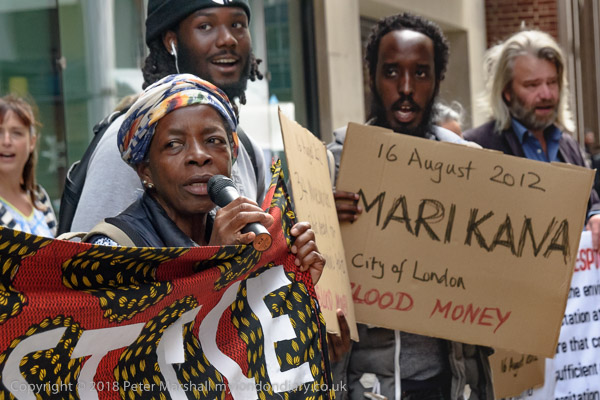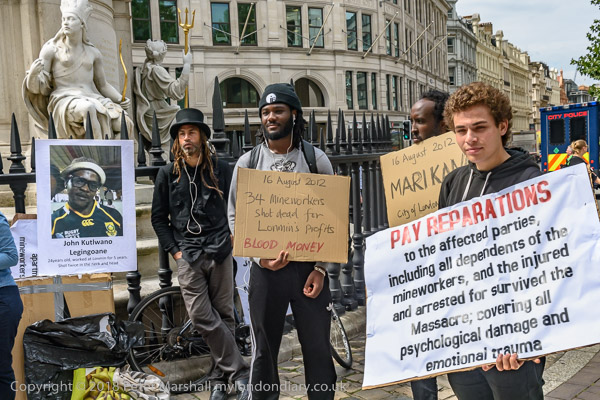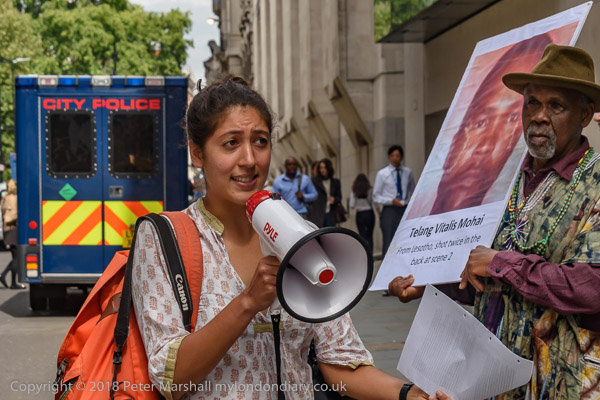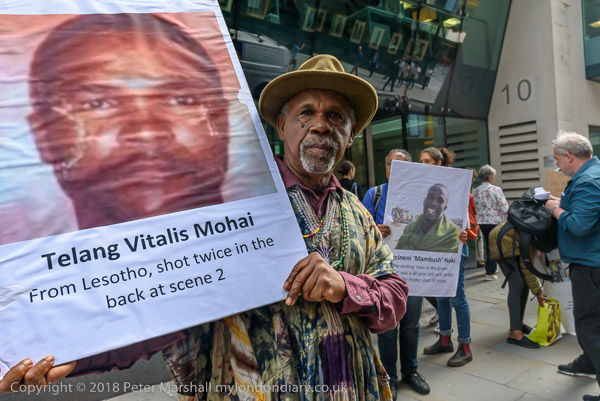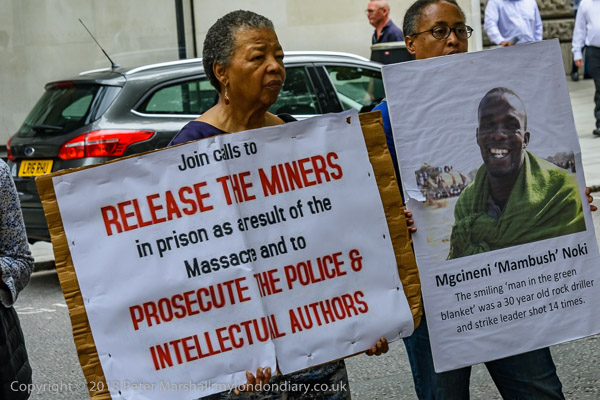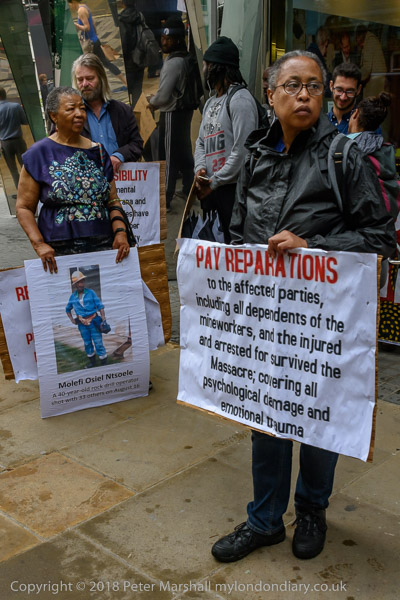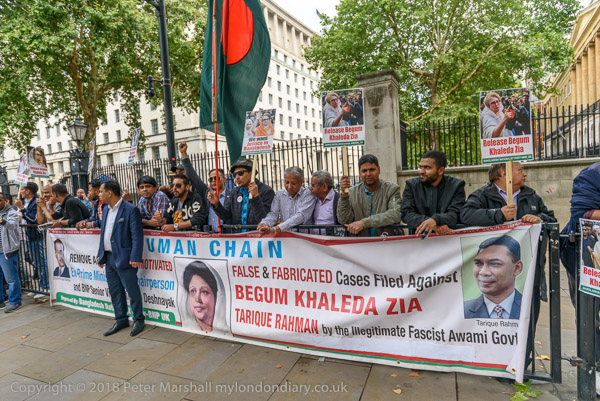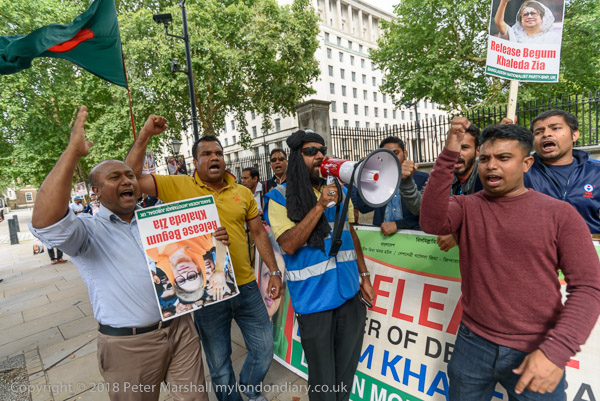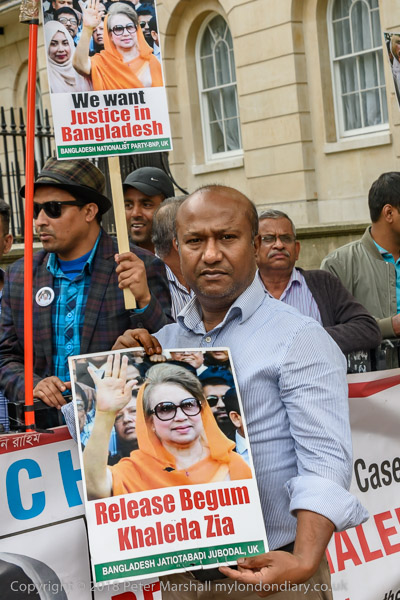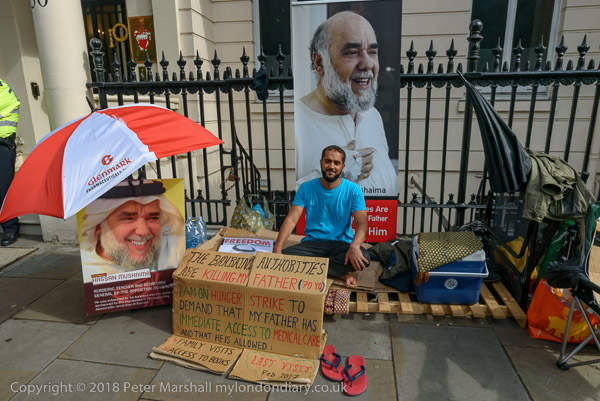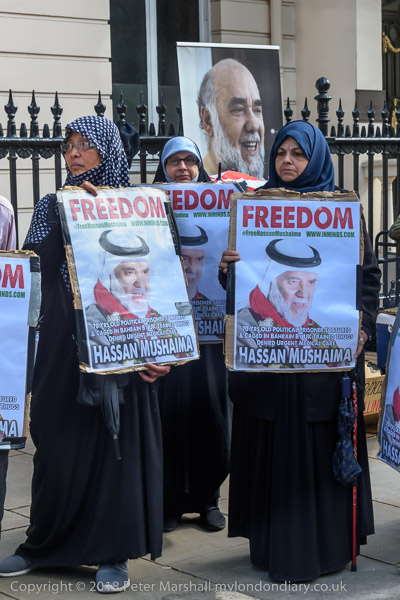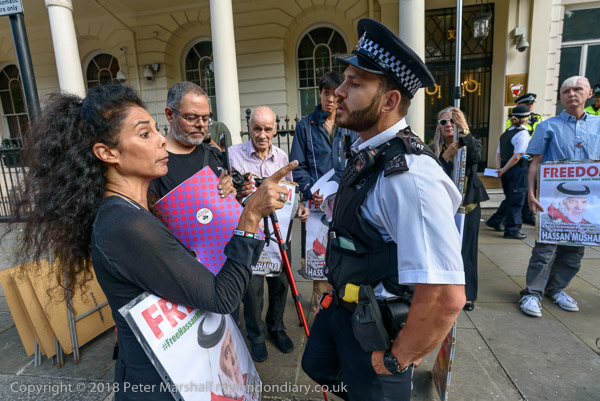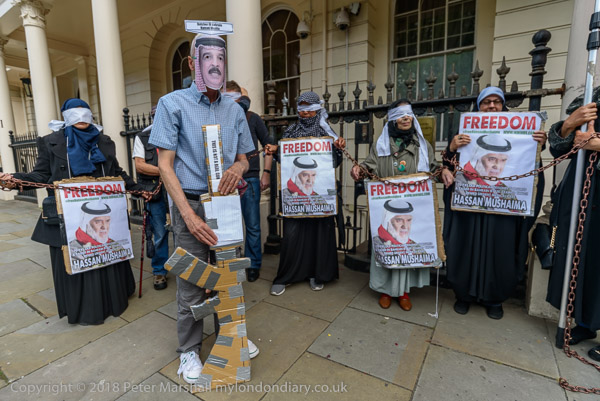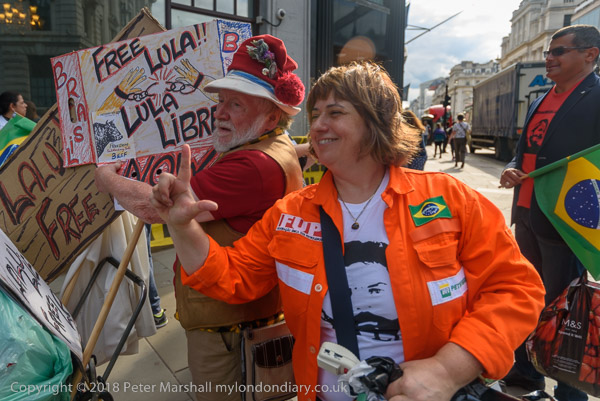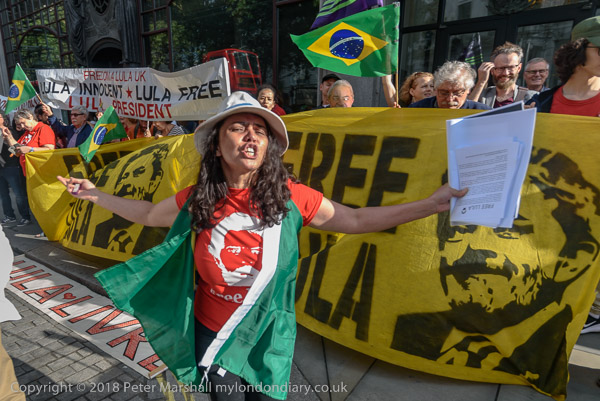Iraq Oil, Freedom, Rosary Crusade & Parliament Square: Saturday 11 October 2008 was another varied day, beginning with protests against the US grab of Iraq’s oil and tthe increasing control over our lives by governments and corporations. I then photographed a walk of public witness by Catholics in London before going to Parliament Square were I found a number of smaller protests.
100 Days to stop Bush & Cheney’s Iraq Oil Grab!
Shell Centre
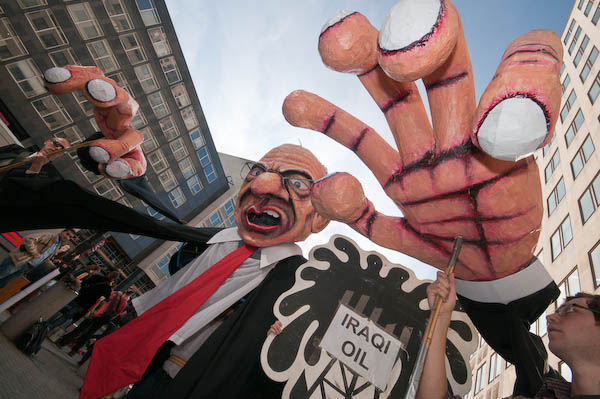
In 1972 the Iraqi government took over Iraqi oil, nationalising the Iraq Petroleum Company which was jointly owned by the world’s largest oil companies, and it provided 95% of government revenue.
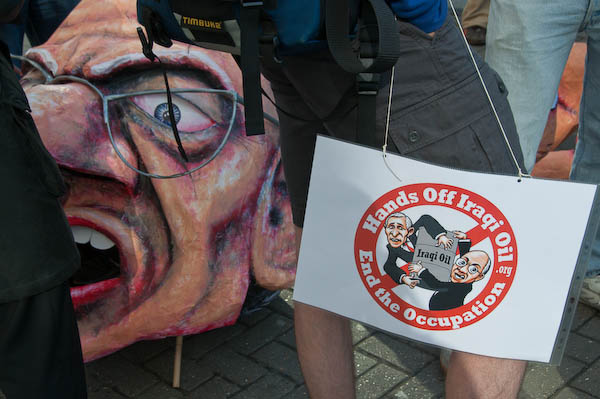
Many of us thought that the main reason behind the 2003 invasion of Iraq was to get the country to hand over most of the oil reserves to foreign companies, particularly Shell and BP.
In 2007 the US-backed Iraqi cabinet had approved a new oil law, strongly opposed by Iraqi trade unions and oil experts, but driven by expert consultants supplied by the UK and US who previously worked at a high level for companies like Shell and BP which would give the foreign oil companies control over oil production and in 2008 the Iraqi Oil Ministry began to announce contracts with former partners in the IPC, ExxonMobil, Shell, Total and BP as with Chevron and others.
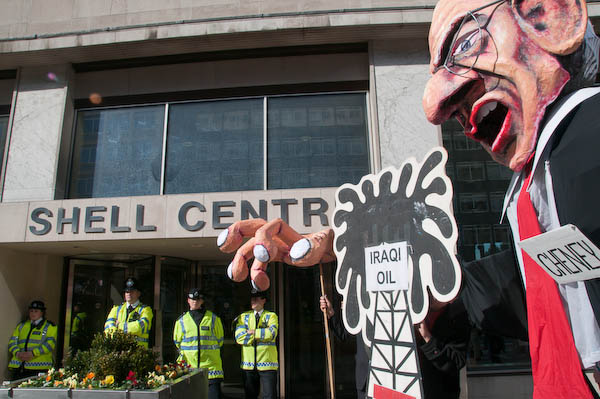
The protest came at the start of the final 100 days of President Bush’s administration in the US and was organised by ‘Hands of Iraqi Oil’, a coalition whose members include Corporate Watch, Iraq Occupation Focus, Jubilee Iraq, PLATFORM, Voices UK, and War on Want and supported by the Stop the War Coalition and others.
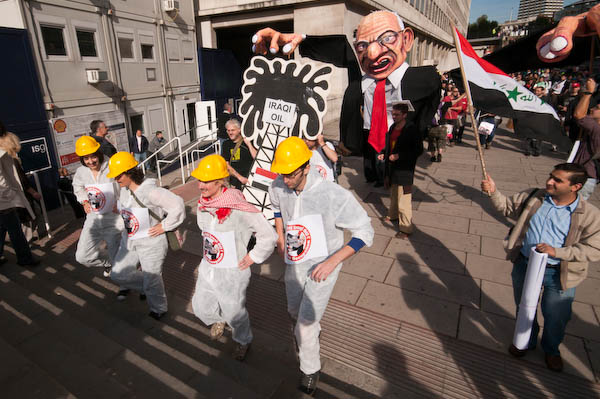
The samba band, brass band, ‘oil workers’ and others came to protest at the Shell Centre with a giant figure of US Vice-President Dick Cheney and a mock oil well as well as some with Iraqi flags.
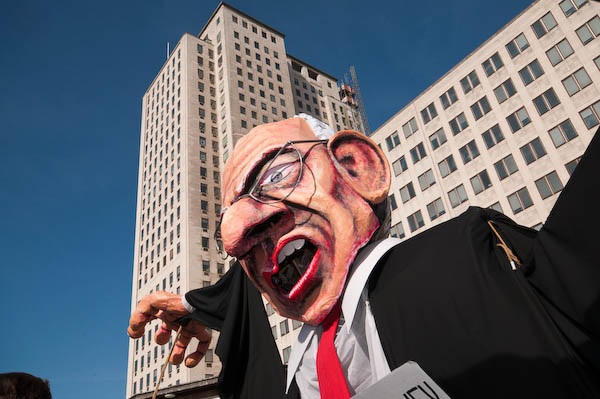
I left them shortly after they set off to march first to protest outside BP’s headquarters in St James’s Square and then on to the US Embassy to go to New Scotland Yard.
Freedom not Fear 2008
New Scotland Yard
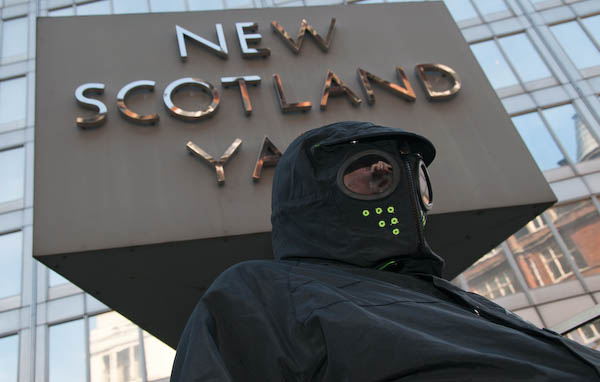
Freedom not fear 2008 was an international protest in over 20 countries against excessive surveillance by governments and businesses, organised by a broad movement of campaigners and organisations.
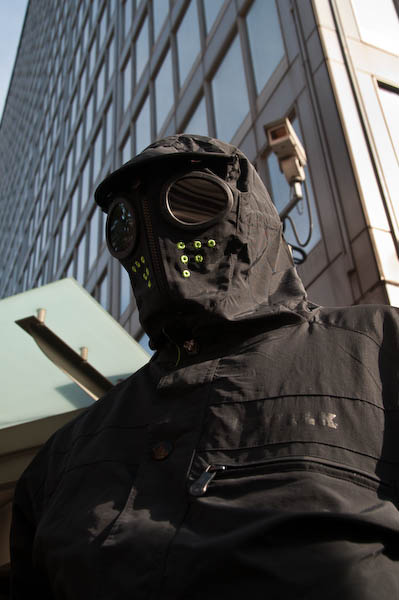
The main UK event was a protest outside the Metropolitan Police headquarters, New Scotland Yard, then still in Victoria Street, Westminster. The protest was against the restriction of the right to demonstrate under SOCPA, the intimidatory use of photography by police FIT squads, the proposed introduction of ID cards, the increasing centralisation of personal data held by government, including the DNA database held by police, the incredible growth in surveillance cameras, ‘terrorist’ legislation and other measures which have affected our individual freedom and human rights.
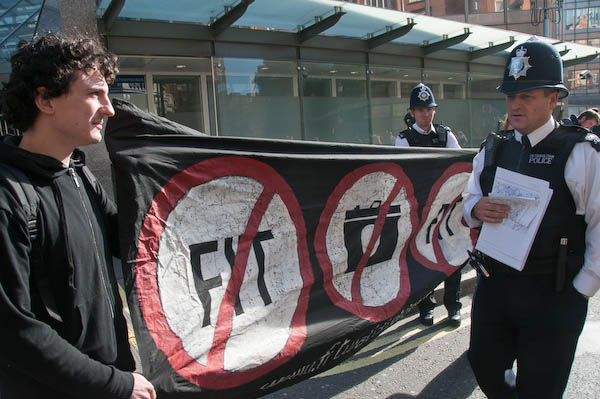
The protest was within the area where restrictions on protests were introduced by the Serious Organised Crime and Police Act 2005 (SOCPA) which required the protesters to have given written notice to the Commissioner of the Metropolitan Police six days in advance for the event. But of course they had not as a part of the protest.
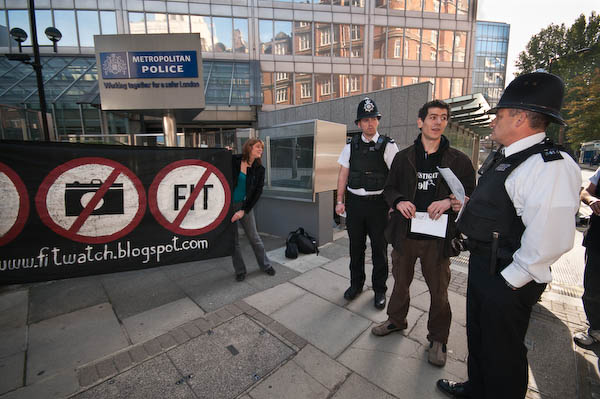
Police tried hard to give protesters SOCPA notices telling them that the protest was illegal but few took them or any interest in them. Some of the officers joked with the protesters who included People in Common and FitWatch, but sensibly they did not attempt to break up the protest or make any arrests, or at least not in the three-quarters of an hour or so I was present.
Rosary Crusade of Reparation
Westminster Cathedral
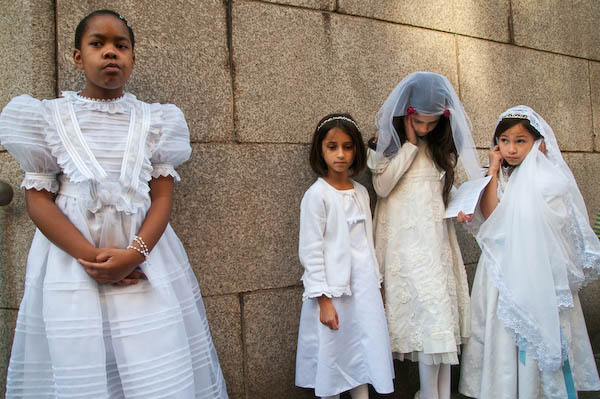
I walked the short distance along Victoria Street to Westminster Cathedral where people were gathering for the Rosary Crusade of Reparation. This began in Austria in 1947 as a campaign by a Franciscan priest to free the country from communist control, and is said to have played a part in the Russian decision to allow Austria its independence in 1955.
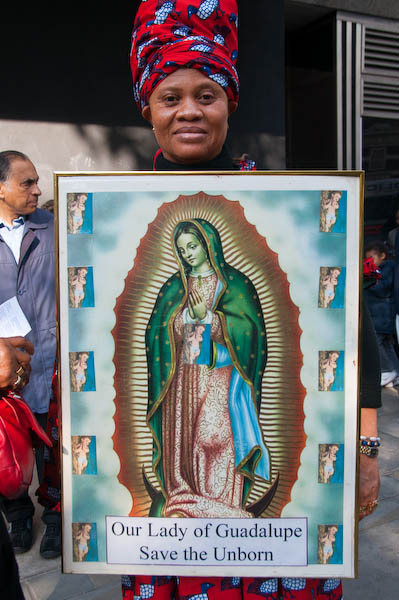
THe first annual procession with the statue of Our Lady of Fatima took place in 1948 in Vienna on the feast of the Name of Mary, Sept 12th. This feast was set up by Pope Innocent XI in 1683 after Turkish invaders surrounding Vienna were defeated by Christian armies who had prayed to the Blessed Virgin.

The procession in London takes place on the nearest Saturday to the final appearance of Our Lady at Fatima in October 1917, close to the end of the First World War, when those present saw the sun dancing around in the sky, and she promised peace and an end to war if men showed contrition for their sins and changed their lives.
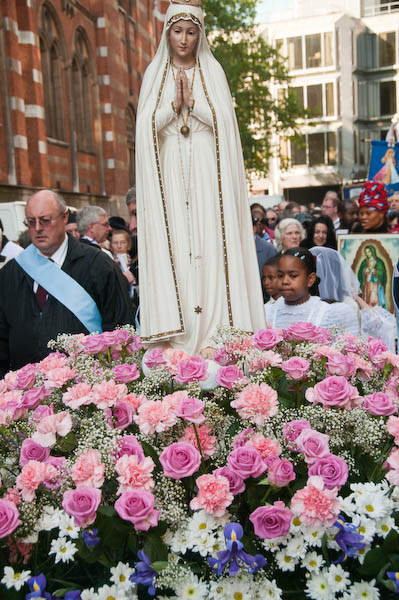
This was the 25 annual procession in London and had as its special theme atonement for the Human Fertilisation and Embryology Bill then passing through Parliament.
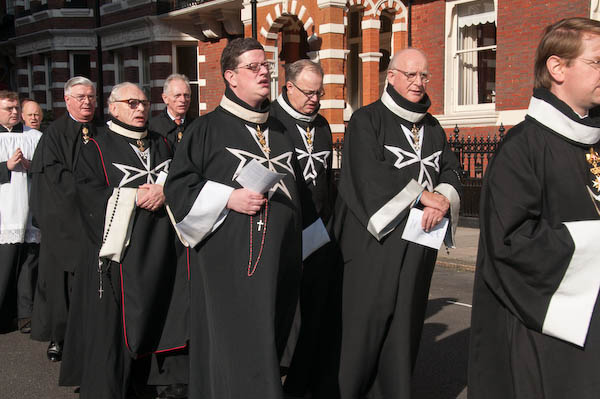
I photographed the start of the procession which was making its way slowly to Brompton Oratory.
More at Rosary Crusade of Reparation.
Parliament Square
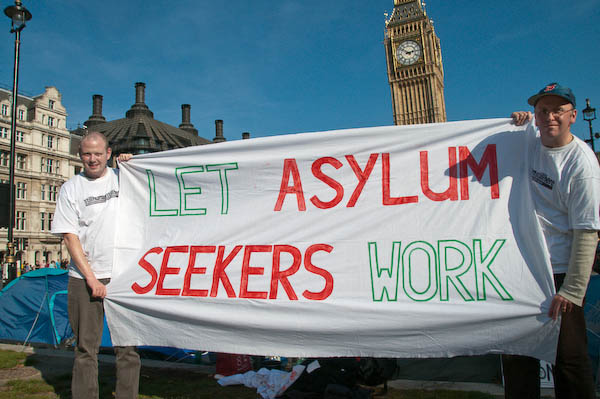
I’d gone to Parliament Square to look for a two-man protest by the two Bens from the ‘Still Human Still Here‘ campaign dedicated to highlighting the plight of tens of thousands of refused asylum seekers who are being forced into abject poverty in an attempt to drive them out of the country. The two men had spent two weeks in a tent in the square living on the emergency rations that the Red Cross will supply to these inhumanely treated asylum seekers.
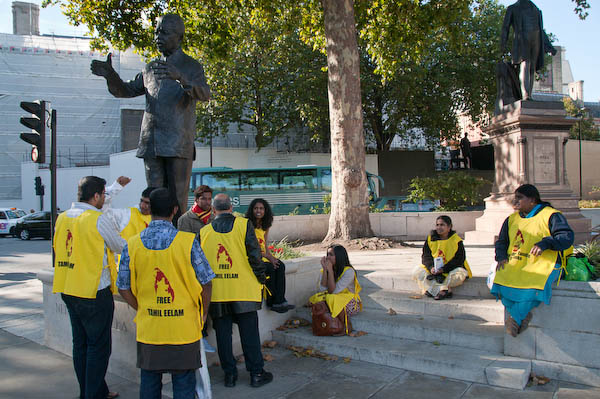
In the square I found a number of other protests taking place. Of course Brian Haw was there – as he had been for over 7 years – and I saw him being insulted by a man who smelled strongly of alcohol. There was a small group of Tamils who told me that they were part of a campaign giving out leaflets all over the centre of London about the ethnic cleansing taking place in Sri Lanka. Another small group, ‘London Against Detention’, was campaigning to close down Asylum detention centres.
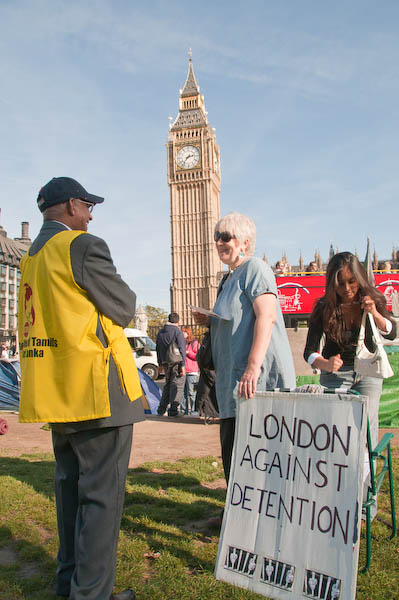
In the corner close to the statue of Churchill was a man who told me he had been on hunger strike for two weeks in a protest to get his case properly investigated. He claimed to have been abused by police and social services following an incident in which as a seven year old child in Llanelli he was implicated in the death of a baby brother.

Finally I saw another group of people hurrying along the street opposite towards Whitehall carrying posters. I chased after them and found that they were Obama supporters hoping to persuade Americans they met to register and vote in the US election.
More at Parliament Square.
Flickr – Facebook – My London Diary – Hull Photos – Lea Valley – Paris
London’s Industrial Heritage – London Photos
All photographs on this page are copyright © Peter Marshall.
Contact me to buy prints or licence to reproduce.
